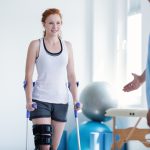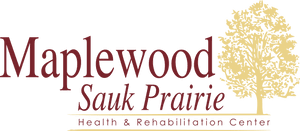
Tips for Staying Motivated During Rehabilitation
March 14, 2023
Physical Therapy and Rehabilitation For Chronic Pain
May 9, 2023A stroke is a serious medical condition that affects the blood vessels in the brain and can cause permanent or temporary paralysis, memory loss, and cognitive differences. One of the biggest impacts of a stroke on an individual is their ability to communicate and express themselves both verbally and non-verbally.
Speech therapy focuses on exercises designed to help improve language processing, recall, and even coordination in order to help with understanding or fluency. Speech therapists may use techniques such as repetition and focus on practicing single words to practice articulation of speech.
How Stroke Affects Speech

A stroke can affect speech in different ways – ranging from complete language blockage to slurred words and phrases. Stroke survivors may have difficulty producing sounds, recalling vocabulary, understanding articulation, or having issues with comprehension.
Generally speaking, the right side of the brain controls nonverbal communication, such as facial expressions, body language, and overall social interaction. Survivors may even experience difficulty in expressing ideas quickly and accurately due to cognitive challenges associated with a stroke.
Aphasia is a common language disorder caused by a stroke that can severely impact the manner of communication for an individual. While it is possible to sustain mild types of aphasia, which primarily affect one form of communication, more severe forms may have an effect on multiple forms of communication, such as speaking, understanding what is being said, reading, and writing.
When it comes to recovery, the earlier speech therapy is started, the better the chance of successful rehabilitation that enables stroke survivors to regain lost skills and learn new strategies for improved communication.
The Benefits of Speech Therapy
Stroke-related aphasia can be emotionally distressing for patients, both in terms of feeling like they don’t belong and worrying about how it reflects on their intelligence. Fortunately, speech and language therapy offers an effective way to help minimize the impact of stroke-related aphasia.
Speech-language pathologists are highly trained professionals who use assessment, diagnosis, treatment plans, and other strategies tailored to the individual needs of the patient to maximize their ability to communicate effectively. By working with the patient and their caregiving team, they provide solutions that can improve conversations, reading comprehension, and writing skills over time.
Speech Therapy Exercises
Working with a professional speech-language pathologist is a great way to recover lost communication skills. They will be able to provide activities and exercises tailored to your needs that can be easily done in the comfort of your home. When practicing such exercises, it’s important to observe yourself in a mirror because form and posture play a large role in proper technique. The most common exercises done in Speech Therapy sessions are;
- Tongue side-to-sides
- Tongue up and down
- Tongue in and out
- Smiling
- Puckered lips
- Word games
- Phonological Processes
Speech Therapy for patients who are unable to speak yet
For stroke patients who have experienced major damage to the brain’s language center, regaining their ability to speak conversationally can seem like a daunting task. Speech therapy for these patients can still provide great benefit in this context, though some standard speech therapy techniques may be more difficult given their unique circumstances.
Fortunately, an alternative method of voice therapy known as singing therapy is available and has been proven to be highly effective. Through singing, the patient is able to access the right side of their brain and tap into those language-generating functions that were previously inaccessible due to the damage suffered by the left side. Singing therapy, then, provides stroke patients with an opportunity to take proactive steps in recovering their lost ability to communicate using spoken words.
Speech Therapy at Maplewood Sauk Prairie
Maplewood Sauk Prairie Health and Rehabilitation Center offer state-of-the-art stroke treatment and rehabilitation courtesy of our certified speech-language pathologists, medical professionals, and therapists. Our team of highly experienced practitioners utilizes the latest therapy techniques to help patients make significant gains in mobility, balance, stamina, strength, communication ability, and more.
To learn more about Maplewood Sauk Prairie’s Speech Therapy programs and other Rehabilitation programs, visit us at our office or call us for inquiries.
References:


